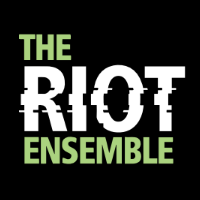Even more moments with Georg Friedrich Haas
Excitement is building at Riot headquarters as in less than two weeks we will be giving the first performance of a major new work by Georg Friedrich Haas, one of the world’s leading composers. Titled Solstices the work will receive its world premiere appropriately at the Dark Music Days festival in Reykjavik on 26th January. But don’t worry if you can’t make it to Iceland: the UK premiere is just a few days later at the Royal Academy of Music’s Susie Sainsbury Theatre, on the 29th. Lasting 70 minutes and written for 10 musicians playing in complete darkness this is an event not to be missed.
As part of the build-up to this unique occasion, Tim Rutherford-Johnson has conducted several exclusive interviews with Haas about his music and inspirations. In this third and final conversation, Haas reveals some of the inspirations behind his new piece. If you would like to read more, the first and second interviews are here and here.
Tim Rutherford-Johnson: For our final set of questions I would like to turn to the piece you have written for us, Solstices.What significance do the solstices have for you?
Georg Friedrich Haas: It is a personal and beautiful coincidence. I met my beloved spouse Mollena [Haas-Williams; pictured above] on 21 December 2013. And we decided to perform a ceremony to sanctify our relationship on 21 June 2014. The rehearsals and first performances of Solstices are/were also close to the solstices.
TR-J: The winter and summer solstices are also important moments in many cultures around the world. Have you drawn on the resonances of these moments in your work at all?
GFH: No.
TR-J: Are you especially attuned to the passage of the seasons in your own life, the lengthening and shortening of days? Do you work differently in summer and winter, for example? Do you consider an awareness of such things to be important?
GFH: I am always sad when the days get shorter, and I am happy when they are longer. When I lived amongst nature (1991–2000, Fischbach, Austria) I was very conscious of this. The turning of the stars, the moon, the cycle of the seasons – this was a mystical experience. Now, living in New York, I still feel the changes: stars are not visible, but the different lights in the different seasons, the different colours of the sky, are inspiring and beautiful.
I assume my music is not influenced by seasonal changes. I am an addict: I need my drug (that is, composition) every day.
TR-J: Have you sought to translate any of these meanings into your piece? And if so, how?
GFH: Maybe you can feel my love for my spouse Mollena shimmering through the music.
TR-J: Solstices will be played in complete darkness. Reading the score, I am struck by the amount of approximation that is built in, relative to many other contemporary scores – with timings, rhythms, entries, and so on. This is obviously essential when playing from memory and in the dark. I’m interested in what compositional models have you drawn upon in writing this way; I detect hints of Lutosławski as well as James Tenney, but perhaps you have your own ideas.
GFH: Composing means: having an idea of music in one’s head, and trying to communicate with musicians to make these ideas reality. When I write for darkness I must find special techniques for this. Yes, Lutosławski and Tenney inspired me, but also Cage, Stockhausen, and Grisey.
TR-J: The harmonic language of the piece is obviously important, with lots of long overtone chords, for example (some last several minutes). Yet you have also composed a number of interventions or ‘elements’ that can appear freely amongst these. How did you go about balancing a precise harmonic language with these much freer components? Is there an element of conflict in the piece, or of union; or perhaps something else?
GFH: There are plenty of musical elements which I love. There are musicians who give these materials the time they need. And there are listeners who dare to share this journey. Enjoy!
TR-J: Finally, in our first interview you said that that darkness has no meaning, it is just a musical medium. Can you say a little more about the musical qualities that darkness brings to Solstices in particular?
GFH: I have never composed such a long time in darkness for so many instruments. I hope between ten instrumentalists and many listeners we will gain a spiritual experience – all focused on ourselves, isolated, yet strongly connected by the energy of the sounds.




